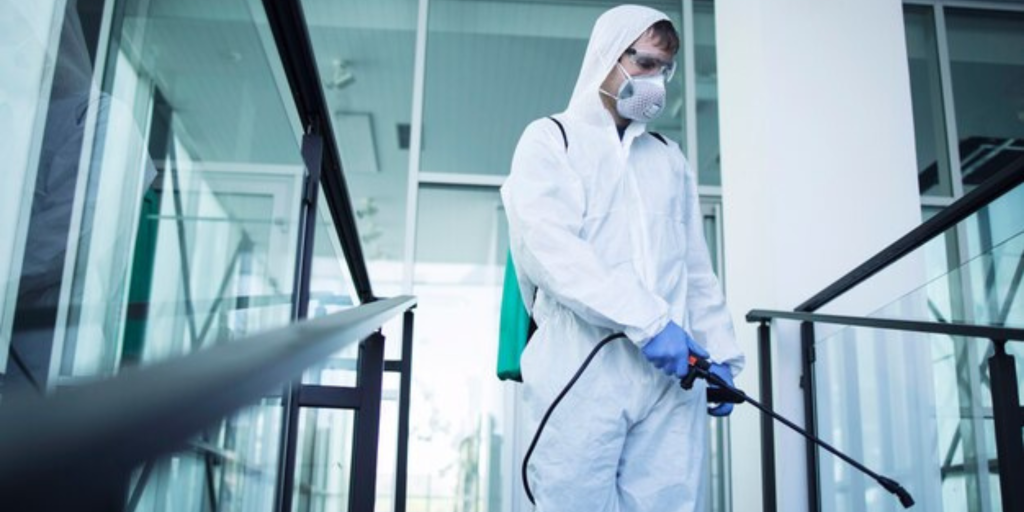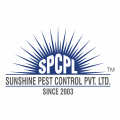
Insects can be a bad dream for any business establishment. Whether it is a stir-with restaurant, a high-traffick retail store, or a large corporate office, unwanted insect can pose significant risk. Not only do they create an unpleasant environment, but they also threatens the health and safety of employees and customers equally. From contaminating food supply to damage to the necessary infrastructure, financial damage from pests and legal troubles cannot be effectively managed.
The presence of insects can be long -term results on the reputation of a business. Imagine the customer who spot the cockroach in a restaurant or the customer notices rodent droplets in a warehouse – such incidents can quickly turn into PR disasters, especially in today’s digital age where negative reviews spread rapidly online. In addition, regulatory bodies apply strict guidelines on hygiene and insect control, and failing to meet these standards can result in fines, shutdown or even cases. Understanding insect pest control for commercial places is not just about eliminating insects once, once an infection occurs; It is about applying active measures to prevent them in the first place.
Why Pest Control is Essential for Commercial Spaces
1. Health and safety rules:
Commercial places need to observe strict health and safety standards. Pest invasions may lead to spreading of diseases, food contamination, and uneven conditions, resulting in heavy fines and even closure of business.
2. Protect the business reputation:
The pest view in commercial business premises, especially in hospitality or food service, can greatly hampered the confidence and attract poor reviews. Active insect pest control will go such a long way in keeping the image clean and professional.
3. Protest:
Rodents, termites, and other insect constructions destroy wires and storage material; they also cause massive damage, making repairs expensive and may lead to dangerous situations.
4. Compliance with the industry standard:
Every industry has its own set of guidelines regarding insect control. In this way, pest management helps keep businesses within compliance standards to avoid further legal implications.
Most Common Pests in Commercial Establishments
1. Rodents (mice and mice)
Rodents are one of the most devastating insects in commercial places. They chew through electrical wires, insulation and stored goods, causing expensive repair and potential fire hazards. Their drops and urine can contaminate food, spread diseases like Hantavirus and Salmonella. Regular inspection and batting programs are necessary to keep the rodent population under control.
2. Chocolis
Cockroaches are flexible insects that thrive in commercial kitchens, warehouses and office places. They contaminated food and surfaces, e. The bacteria, including Koli and Salmonella, are notorious for spreading. These insects breed quickly, making them difficult to eradicate them without professional insect control measures. Cleanliness, sealing entry points, and insect development can help manage regulatory infections.
3. Termite
Termites are silent destroyers that can cause severe structural damage to commercial buildings. They eat food on wood, paper and other cellulose materials, weakening the integrity of walls, floors and furniture. Without early detection, a termital infection can make a broad and expensive repair. Businesses should invest in annual termites inspection and preventive treatment to protect their properties.
4. Flies
More than only one irritation, general housewife pose a health threat to commercial installations, especially in people related to food service Flies disturb dangerous microorganisms and can cause food contamination resulting in food -borne diseases. The most common flies found in restaurants and grocery stores are fruit flies and home flies and drain flies. Thus, by reducing waste, cleaning drains, installing fly traps, or other methods, thus prevention of infection is ensured.
Effective Pest Control Strategies for Commercial Spaces
Adopting an effective strategy of insect control allows the continuation of cleanliness and safety in commercial space. Businesses should take a proactive approach to insect control through the establishment of risk area identification, implementation of hygiene measures, and use of professional insect control services. Frequent assessments are also crucial in the infection detection as this enables early action before the problem worsens. Covering a row of entry points, cracks, and gaps helps to keep pests out of buildings.
The other key method includes proper waste management to avoid easy availability of food sources. The installation of pest control services facilities such as the meshes and insect light meshes will also play a useful role in monitoring and controlling infection. Involvement with accredited insect management representatives helps businesses to enjoy professional advice and perfect remedy as per their particular requirements. Only through a complete insect control plan can businesses protect their names, keep health regulations, and keep working and customer environments free of insects.
FAQs About Pest Control for Commercial Spaces
1. How often should commercial spaces undergo insect control treatment?
The frequency of insect control treatment depends on the type of business, the level of infection risk and local health rules. Most businesses benefit from monthly or quarterly insect control services.
2. Are pest control treatment safe for staff and customers?
Professional insect control companies use safe and approved treatments. However, businesses should follow the recommended security measures such as temporary withdrawal if necessary.
3. What are the signs of an insect infection in commercial places?
Common signals include drops, abnormal smell, chewing wire or packaging, visible insect, and customer or employee complaints.
4. Can business handle insect control on their own?
While basic preventive measures help, professional insect control services provide effective and long -term solutions, especially for severe infections.
5. Which industries require the stringent pest control measures?
Food service, healthcare, hospitality and warehousing industries require strict insect control to meet health and safety rules.


